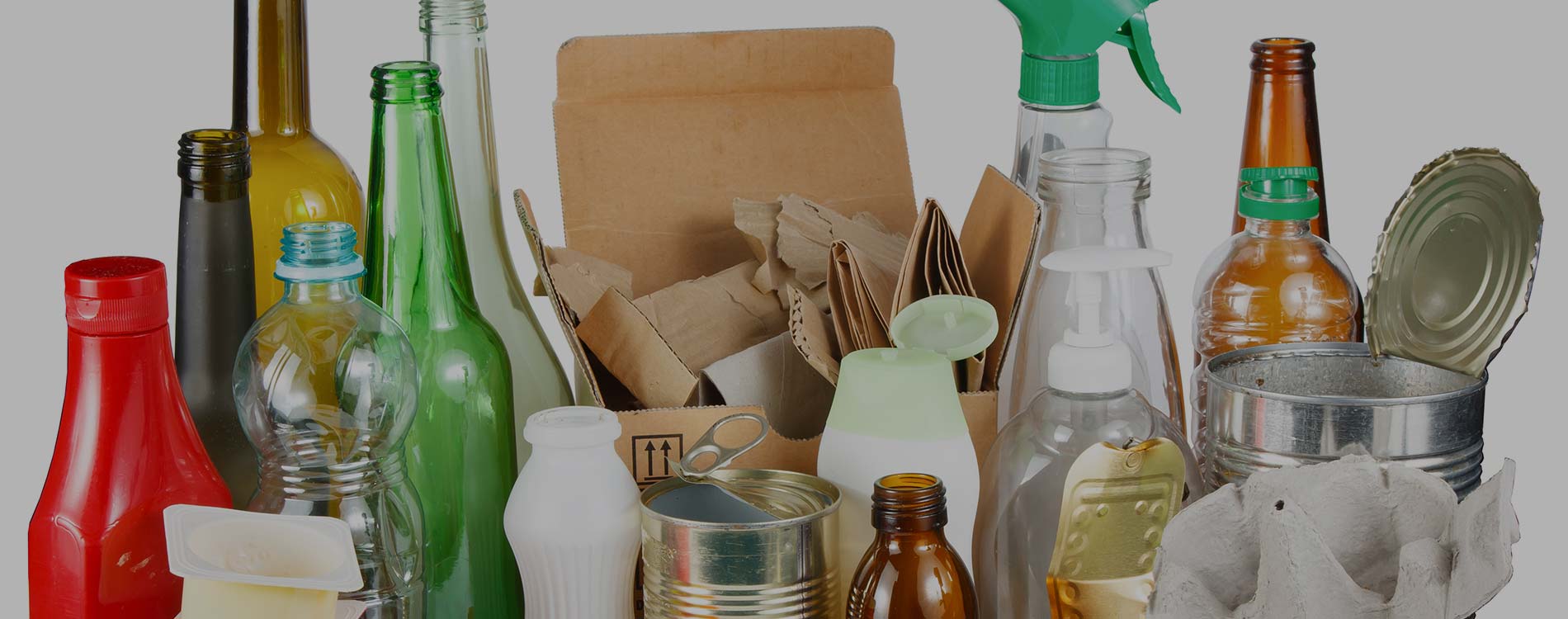Eco-Friendly Workspaces through Efficient Recycling
Posted on 19/06/2025
Eco-Friendly Workspaces through Efficient Recycling: A Comprehensive Guide
In today's fast-paced, sustainability-focused business landscape, the demand for eco-friendly workspaces is at an all-time high. Organizations are increasingly aware of their environmental impact and are seeking practical solutions to create environmentally conscious offices. Among the most effective strategies is deploying efficient recycling practices--but it's not just about separating paper from plastic. Adopting purposeful, well-managed recycling systems can significantly reduce waste, conserve valuable resources, and establish a workplace culture committed to environmental stewardship.

Why Prioritize Eco-Friendly Workspaces?
Before delving into efficient recycling as a cornerstone of eco-friendly offices, it's vital to grasp the broader benefits. An eco-friendly workspace does more than protect the planet--it also supports employee well-being, reduces operational costs, and projects a brand image that resonates with eco-conscious clients and prospective hires.
- Reduced environmental impact: Cutting waste and maximizing recycling lowers your company's carbon footprint and saves precious resources.
- Enhanced employee morale: Workers feel pride and satisfaction knowing their efforts contribute to a greener planet.
- Improved public relations: Commitment to sustainability elevates your company's image in the marketplace.
- Potential cost savings: Less landfill waste and better resource management can translate into lower overhead.
Thus, adopting green workspace solutions isn't just a moral obligation; it's a smart business decision.
The Role of Efficient Recycling in Sustainable Office Spaces
Recycling is often viewed as a simple, straightforward process. However, to establish a genuinely eco-friendly office environment, organizations must go beyond basic recycling bins. Efficient recycling strategies help offices function sustainably by targeting all aspects of their waste streams and optimizing their recycling processes.
What Does "Efficient Recycling" Mean for Workspaces?
Efficient recycling in the workplace refers to seamlessly integrating waste reduction, reuse, and recycling systems into daily office operations. It encompasses thoughtful planning, employee education, policy development, and regular monitoring to maximize the diversion of materials from landfills. Here are some crucial elements of efficient recycling in the office:
- Comprehensive waste auditing - Accurately assessing the types and amounts of waste produced to identify opportunities for reduction and recycling.
- Clear labelling and bin placement - Ensuring recycling points are conveniently located, correctly labelled, and easily accessible to all.
- Continuous staff engagement - Providing ongoing education to ensure everyone knows what and how to recycle.
- Partnership with responsible recyclers - Working only with vendors who meet high environmental standards.
- Measurement and reporting - Tracking progress and celebrating milestones to maintain momentum.
Building an Eco-Friendly Workspace: Step-by-Step Efficient Recycling Solutions
Transitioning to an environmentally friendly office doesn't happen overnight. It requires a systematic approach. Let's explore step-by-step recycling solutions that foster sustainable work environments.
1. Assess Your Current Waste Stream
*Start by understanding what your workspace produces.* Conduct a waste audit--examine bins and dumpsters over a set period to identify the types (paper, plastics, electronics, food scraps) and volumes of waste your office generates. This provides a clear roadmap for targeted recycling.
2. Set Smart, Measurable Recycling Goals
Setting goals gives your eco-friendly office recycling program both direction and purpose. Set SMART goals (Specific, Measurable, Achievable, Relevant, Time-bound). For example:
- Reduce landfill-bound waste by 30% within one year.
- Recycle 100% of old electronics during the next refresh cycle.
- Compost all food scraps from the kitchen and break rooms.
3. Design an Accessible, Intuitive Recycling System
Placement and labelling are critical. Eco-friendly workspaces should have well-marked recycling stations at every key interaction point: next to printers, in break rooms, and at central communal areas. Use color-coded and clearly labelled bins for paper, plastics, metals, e-waste, and compost. Good signage reduces mistakes and contamination in recycling streams.
4. Educate and Engage Employees
A recycling program's success hinges on employee participation. Host training sessions, send regular reminder emails, and leverage visual guides. Gamify recycling--hold competitions between departments, track performance on communal boards, and reward achievements. An involved team is a responsible team.
5. Partner with Certified Recycling Vendors
Not all recycling vendors are made equal. Conduct due diligence and select partners that adhere to robust environmental practices, such as proper handling of technology and sensitive data (especially for electronics recycling). Look for ISO certifications or similar credentials.
6. Audit, Measure, and Report Progress
Schedule periodic reviews of your recycling program. Are your goals being met? Are there bottlenecks or common errors? Share data in newsletters or at all-hands meetings. Transparency breeds accountability and gives everyone a sense of progress and ownership.
Beyond Recycling: Other Eco-Friendly Practices for Workspaces
While efficient recycling is crucial, creating a holistic eco-friendly workspace involves complementing recycling with additional sustainability strategies. Combine recycling with the following best practices for even greater environmental benefit:
- Encourage reusables: Foster a "bring your own mug" culture, provide reusable cutlery, and reduce single-use plastics.
- Invest in sustainable office supplies: Purchase recycled-paper products and eco-certified cleaning agents.
- Adopt energy-saving measures: Switch to LED lighting, install smart thermostats, and power down electronics after hours.
- Support remote or hybrid work: Fewer commutes mean less emissions and less need for office resources.
- Incorporate green design elements: Use plants for air purification, choose furniture made from recycled materials, and ensure proper natural light and ventilation.
Technology's Role in Eco-Friendly Office Recycling
Modern offices are increasingly reliant on technology, not only for daily operations but also for sustainability. Smart recycling systems help maximize efficiency and reduce contamination rates. Some offices use sensor-equipped bins that notify staff when they're full, while others track data digitally for better insights.
Software can monitor recycling rates, send real-time alerts, and even gamify environmental challenges company-wide. Moreover, document management systems cut down on printing by encouraging electronic workflows, thus reducing paper waste directly at the source.
Common Challenges in Office Recycling (and How to Overcome Them)
No initiative is without its obstacles. Efficient recycling in the workplace often faces challenges such as:
- Contamination: Non-recyclable materials tossed into recycling bins can spoil entire batches.
- Lack of participation: Employees may not see recycling as their responsibility.
- Inconsistent service levels: Vendors may not collect recyclables on time or may not process them properly.
Solutions:
- Deliver frequent training and clear, concise communication about recycling rules.
- Make participation easy and convenient--bins should be visible and accessible.
- Appoint "eco-champions" or green teams in your organization to lead by example.
- Build relationships with reliable recycling partners and set high expectations for service.
The Financial and Environmental Payoff
Switching to eco-friendly office practices through efficient recycling brings both tangible and intangible advantages. Financially, less waste often means fewer collection fees, lower procurement costs through reusables, and eligibility for government tax breaks or sustainability grants. Environmentally, your organization actively participates in reducing greenhouse gas emissions, conserving water and energy, and protecting ecosystems from unnecessary waste load.
These collective benefits make the initial investment and sustained effort in efficient recycling not only worthwhile but essential for forward-thinking companies.
Case Studies: Eco-Friendly Workspaces in Action
Case Study 1: Tech Startup Reduces Office Waste by 70%
A San Francisco-based tech company implemented a robust recycling and composting system, eliminating single-use plastics and transitioning to digital-first document handling. Staff training and rewards fostered enthusiastic participation, and within a year, the company sent 70% less waste to landfills--while enjoying a boost in employee engagement.
Case Study 2: Legal Firm Goes Paperless and Green
A mid-sized legal firm replaced paper files with secure cloud storage solutions, slashing paper consumption by half. Recycling points were strategically placed for old office supplies and electronics, while staff received regular "green tips" in internal newsletters. The firm's reputation as an industry sustainability leader drew new clients and top legal talent.

The Future of Eco-Friendly Workspaces
The evolution of eco-friendly offices through efficient recycling is ongoing. With advances in recycling technology and increasing employee demand for sustainable workplaces, the movement is set to grow. Offices of the future may feature zero-waste kitchens, fully digital workflows, and real-time waste tracking dashboards.
Conclusion: Taking Action for Sustainable Workspaces
Building eco-friendly workspaces through the lens of efficient recycling is more than a trend--it is a fundamental shift towards responsible business operations. Organizations that embrace sustainable office practices set themselves apart, enjoying a multitude of social, environmental, and economic rewards.
By following a step-by-step approach--auditing waste, setting clear goals, designing accessible systems, engaging employees, and leveraging technology--any office can make a meaningful impact. The journey to a greener workspace begins today, with every item that goes into the right bin.
Take the First Step
Ready to start your organization's journey toward a greener future? Evaluate your current recycling program, engage your team, and commit to continuous improvement. The environmental--and business--benefits are well worth the effort.
Transform your workplace into a model of sustainability--because every step toward efficient recycling brings us closer to a cleaner, healthier planet.
Latest Posts
Discovering How Waste Has Been Managed Over the Ages
Transforming Plant Pot Disposal into an Eco-Friendly Practice
Community initiatives for recycling obsolete chargers
A Guide to Implementing Recycling in Educational Institutions

 020 3744 2205
020 3744 2205








